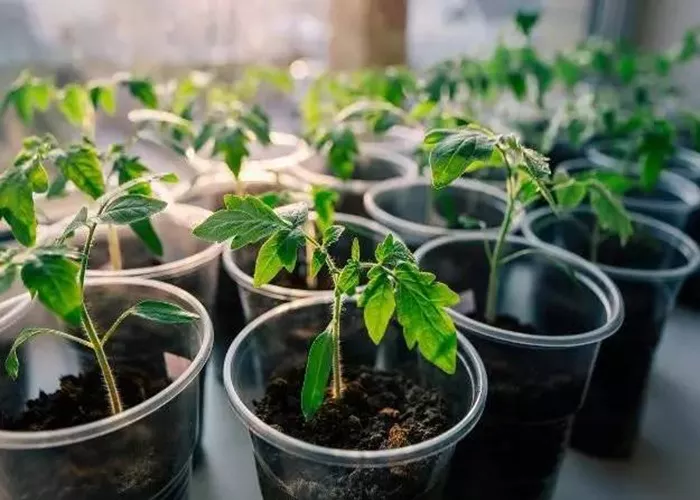In an increasingly fast-paced world, many people feel disconnected from their surroundings and neighbors. However, a growing movement across the Greater Newburyport area is helping bridge that gap, uniting people through a shared passion for native plants and wildlife restoration.
One such initiative, West Newbury Wild and Native, was established in 2021 by residents of West Newbury. The group focuses on combating invasive plant species, promoting native plant gardens, and creating spaces for residents to exchange knowledge and resources. Since its creation, people from neighboring towns have joined the monthly meetings, resulting in several offshoots dedicated to native plant promotion and fostering a local sense of community.
For many participants, the motivation to restore native habitats comes from the noticeable decline in local wildlife. “Remember when your windshield would be covered with insect remains? When was the last time that happened? And what about catching fireflies on summer evenings?” asks Nancy Pau, co-founder of West Newbury Wild and Native. “We want future generations to experience these simple, yet magical moments.”
The crisis is real: since the 1970s, the United States has lost nearly 3 billion birds—about one-third of the nation’s total bird population—largely due to habitat loss and the shrinking insect population, worsened by pesticide use. The fact that 87% of land east of the Mississippi is privately owned highlights the importance of restoring native habitats on private properties to reverse this trend. Restoring nature in our own backyards may be the key to turning the tide.
Currently, U.S. lawns span 44 million acres—an area nearly equal to the size of all national parks combined. Yet, most lawns support little more than non-native grasses. By transforming these green spaces into thriving ecosystems, homeowners can support biodiversity. Native plants, for example, provide essential food and habitat for pollinators like butterflies and moths, whose larvae are a crucial food source for songbirds.
This movement also encourages a rethinking of land use. Traditionally, land has been divided into spaces designated for people—like cities and farms—and those reserved for nature, such as parks and preserves. However, as we approach Thanksgiving, the Indigenous perspective reminds us that humans and nature are intrinsically linked. By reintroducing native plants into our yards and allowing insects to thrive, we not only restore wildlife but reconnect with the abundance that sustains us all.
Several groups in the region are spearheading this effort:
Merrimac Neighbors for Nature (formed in 2024) organizes local events such as trail walks and birdwatching outings, while also hosting educational sessions on native plants and the risks of pesticides. Contact them at [email protected] or on Facebook.
Amesbury Eco Gardeners (AEG), founded in 2023, focuses on gardening with native plants to support pollinators, birds, and other wildlife. AEG will be installing a native plant pollinator garden at Amesbury Town Park in Spring 2025. For more information, contact [email protected].
Vesey Park Rewilding Project in Groveland is restoring a 9,000-square-foot forest to preserve the area’s natural beauty. In 2024, 160 volunteers helped plant 1,800 trees and shrubs. Volunteers are needed for future planting events in 2025 and 2026. Contact [email protected].
Pollinator PowerWorks, founded by high school students and residents in Newburyport, is working to expand pollinator habitats through community-driven initiatives. They focus on creating pollinator gardens and meadows that provide vital ecosystems for bees, butterflies, and other pollinators. Contact them at [email protected].
West Newbury Wild and Native continues to advocate for the preservation of natural landscapes, one yard at a time. Through demonstration gardens and educational webinars, the group empowers individuals to restore healthy ecosystems in their own backyards. Contact them at [email protected] or visit their website at www.wnwildnative.org.
As we plant native species to restore wild places, we repair the relationship between humans and the natural world. By doing so, we gain not only a deeper connection to nature but also a sense of community, belonging, and purpose. These efforts serve as a reminder of the healing power of plants and their ability to unite us in a shared mission.
Nancy Pau, a wildlife biologist and co-founder of West Newbury Wild and Native, encourages everyone to get involved: “As we restore these habitats, we are not just nurturing wildlife—we’re nurturing our communities and ourselves.”
Related topics:
- Revolutionary Sensor Monitors Plant Health in Real Time, Remotely
- How M5Stack’s M5Stamp-Pico Powers a Smart, Wireless Plant Health Monitor with Color-Coding
- Students and Faculty Create a Lush Forest Patch Outside Monroe Hall


